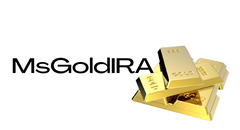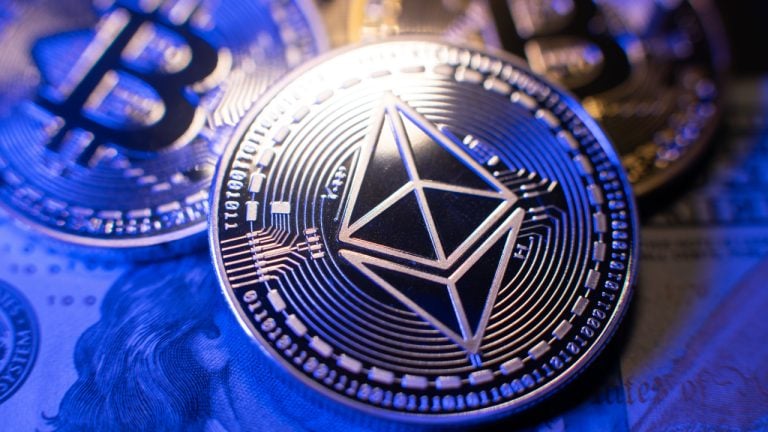
Bitcoin ETF Approvals: A Milestone in Cryptocurrency Regulation
The recent approval of spot bitcoin ETFs by the United States Securities and Exchange Commission (SEC) has marked a significant milestone in the regulatory landscape for cryptocurrencies. This move has captured the attention of investors and analysts, who are now shifting their focus towards potential spot ether ETF approvals in the near future.
Ethereum Surges as Bitcoin ETF Approval Remains Subdued
Contrary to expectations, the market reaction to the approval of bitcoin ETFs has been relatively subdued. Bitcoin, the flagship cryptocurrency, did not exhibit the anticipated bullish surge and its price movement remained stable. However, ethereum (ETH) experienced a significant jump in price, breaking the resistance at $2,400 and rising to $2,527 per unit shortly after the bitcoin ETF approval. This increase indicates the market's anticipation and potential front-running of approvals for ethereum-based ETFs.
Expected Inflows and Market Anticipation
In the coming weeks and months, the focus will be on the expected inflows into these ETFs. Galaxy Research estimates potential inflows of "$14bn in the first year following an ETF launch, ramping up to $27bn by the second year and $39bn by the third year post-launch." Vance Spencer, co-founder of Framework Ventures, predicts that "$10 billion or more" will enter spot bitcoin ETFs by the end of the year, with around "$2 billion to $3 billion" in the first anticipated week of trading.
Spot Ether ETF Approvals on the Horizon
By May, the attention is expected to shift towards potential spot ether ETF approvals. Several firms, including Blackrock, Vaneck, ARK 21Shares, Fidelity, Invesco/Galaxy, Grayscale, and Hashdex, have filed applications for spot ether ETFs. The SEC's decision deadlines span from May to August 2024, with the first decisions expected in late May.
SEC's Cautious Approach towards Spot Ether ETFs
Despite the SEC's approval of ether futures ETFs, they have been hesitant to greenlight spot or mixed-type ethereum products. Recent delays in decisions on applications for ether ETFs, including those from Hashdex and Grayscale, indicate the agency's cautious approach, as they seek further public input.
Analysts' Perspectives on Spot Ether ETF Approvals
Analysts like Bloomberg's Eric Balchunas view the approval of spot bitcoin ETFs as a precursor to the likely approval of spot ether ETFs, with a high chance of approval by May. However, digital asset lawyer Joe Carlasare suggests that the SEC might take a more measured approach, setting precedents that could impact future digital asset ETFs.
What Lies Ahead for Bitcoin ETF Inflows and Spot Ether ETF Approvals?
While the approval of bitcoin ETFs has been a landmark event, the focus now shifts to bitcoin ETF inflows and the awaited decisions on spot ether ETFs. The crypto community eagerly awaits the SEC's stance on spot ether ETF approvals in 2024.
Now that spot bitcoin ETFs have been approved, what are your thoughts on the chances of spot ether ETF approvals? Share your opinions in the comments section below.
Frequently Asked Questions
How much of your portfolio should you hold in precious metals
This question can only be answered if we first know what precious metals are. Precious metals refer to elements with a very high value relative other commodities. This makes them extremely valuable for trading and investing. Today, gold is the most commonly traded precious metal.
There are however many other types, including silver, and platinum. The price of gold tends to fluctuate but generally stays at a reasonably stable level during periods of economic turmoil. It is also relatively unaffected both by inflation and deflation.
In general, prices for precious metals tend increase with the overall marketplace. They do not always move in the same direction. If the economy is struggling, the gold price tends to rise, while the prices for other precious metals tends to fall. Investors expect lower interest rates which makes bonds less appealing investments.
When the economy is healthy, however, the opposite effect occurs. Investors want safe assets such Treasury Bonds and are less inclined to demand precious metals. Since these are scarce, they become more expensive and decrease in value.
It is important to diversify your portfolio across precious metals in order to maximize your profit from precious metals investments. Because precious metals prices are subject to fluctuations, it is best to invest across multiple precious metal types, rather than focusing on one.
Is buying gold a good option for retirement planning?
Although gold investment may not seem appealing at first glance due to the high average global gold consumption, it's worth considering.
Physical bullion bar is the best way to invest in precious metals. There are many ways to invest your gold. It's best to thoroughly research all options before you make a decision.
For example, purchasing shares of companies that extract gold or mining equipment might be a better option if you aren't looking for a safe place to store your wealth. If you require cash flow, gold stocks can work well.
ETFs allow you to invest in exchange-traded funds. These funds give you exposure, but not actual gold, by investing in gold-related securities. These ETFs often include stocks of gold miners, precious metals refiners, and commodity trading companies.
What are the benefits to having a gold IRA
It is best to put your retirement money in an Individual Retirement Account (IRA). It's not subject to tax until you withdraw it. You are in complete control of how much you take out each fiscal year. And there are many different types of IRAs. Some are better suited for college students. Others are intended for investors seeking higher returns. Roth IRAs are a way for individuals to make contributions after the age of 59 1/2, and then pay taxes on any earnings upon retirement. The earnings earned after they withdraw the funds aren't subject to any tax. So if you're planning to retire early, this type of account may make sense.
Because it allows you money to be invested in multiple asset classes, a ‘gold IRA' is similar to any other IRAs. Unlike a regular IRA that requires you to pay taxes on the gains you make while you wait to access them, a gold IRA does not have to do this. People who prefer to save their money and invest it instead of spending it are well-suited for gold IRAs.
Another benefit of owning gold through an IRA is that you get to enjoy the convenience of automatic withdrawals. It means that you don’t have to remember to make deposits every month. You could also set up direct debits to never miss a payment.
Finally, gold is one of the safest investment choices available today. Because it isn’t tied to any specific country, gold’s value tends to stay stable. Even in economic turmoil, gold prices tends to remain relatively stable. Gold is a good option for protecting your savings from inflation.
Statistics
- Indeed, several financial advisers interviewed for this article suggest you invest 5 to 15 percent of your portfolio in gold, just in case. (aarp.org)
- Contribution limits$6,000 (49 and under) $7,000 (50 and up)$6,000 (49 and under) $7,000 (50 and up)$58,000 or 25% of your annual compensation (whichever is smaller) (lendedu.com)
- (Basically, if your GDP grows by 2%, you need miners to dig 2% more gold out of the ground every year to keep prices steady.) (smartasset.com)
- If you accidentally make an improper transaction, the IRS will disallow it and count it as a withdrawal, so you would owe income tax on the item's value and, if you are younger than 59 ½, an additional 10% early withdrawal penalty. (forbes.com)
- The price of gold jumped 131 percent from late 2007 to September 2011, when it hit a high of $1,921 an ounce, according to the World Gold Council. (aarp.org)












